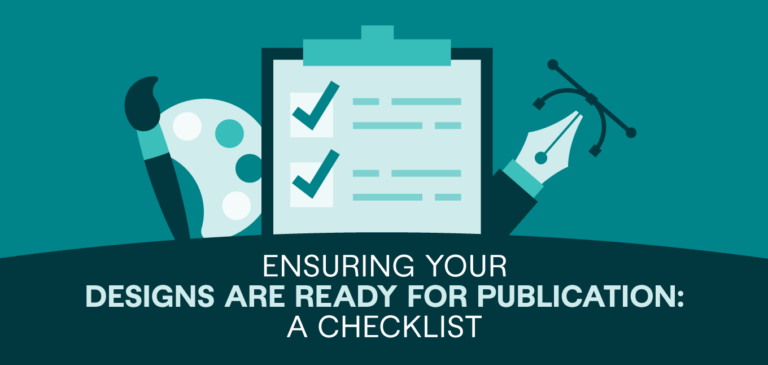Whether it is a product, a destination, a property or a person, every brand wants to share their unique proposition with the masses. Or more specifically, with the media. Publicists can be an indispensable part of reporting and journalism, since individuals and agencies are responsible with sharing trends, updates and news for their clients. The connection between a journalist and a publicist is a give-and-take type of tug-of-war, but one that can be mutually beneficial for each professional.
In this series, we navigate the importance of publicity in content creation, and illustrate how these two powerhouses can better work together to create captivating, timely and impactful stories. In part three, publicists share the most effective ways of working with journalists respectfully.
What makes both of these digital clubs are effective for publicists and wordsmiths because they follow a specific decorum of respect and acknowledge the value of one another’s work. When these two parties function cohesively, they create captivating and interesting stories—but it only works when smart etiquette rules are followed.
As entrepreneur and public relations pro Tammy Mark explains, civility is an undeniable necessity of PR, and it’s even implicit in the name. “PR is how a brand relates to the public, which includes the media and anyone else that the brand is communicating its message to. The importance of etiquette should by extension apply to anyone representing that brand,” she explains. “Since PR is about relations, and therefore centered on maintaining good relationships, there should be some generally accepted guidelines to keep everyone working successfully together in the same space.”
Top etiquette rules for public relations

1. Don’t add more work to a journalist’s plate.
When a journalist is assigned a story, they often first go to the sources or publicists who have access to the people or products they need to reach. Whether it’s a relationship expert for a dating advice column or the latest-and-greatest precision cooker for a gift guide round-up, the role of a PR executive is to gather the information quickly and efficiently for the journalist, according to the public relations manager for Intrepid Travel, Nicole Powell.
Powell explains that while it’s a busy industry, it’s important to remember competition is fierce and writers receive hundreds of pitches day-in and day-out. She recommends getting it right the first time, since often, that may be the only chance you’ll get. “Always include specific data or back-up information in a pitch when necessary and link to it or provide contact details for other sources to make the details easier for them to confirm and fact-check,” she recommends. When you make a journalist’s deadline more difficult instead of easier, it’s less likely he or she will choose to work with you again.
2. Don’t ask for unreasonable—or inappropriate features.
There are few requests as frustrating to a journalist as asking for an update to a story that was published many, many moons ago. Especially for a freelancer writer who doesn’t have access to the backend of a website or no longer works for the publication in question, being asked to do a ‘favor’ for a client is not only inappropriate, but frustrating.
Vice President of GreenRoom Patrick Gevas explains even if a publicist feels held to the fire for placements, hounding a writer with an impossible ask is a fast way to burn a bridge. And on that note, take a wordsmith for their word. “If a journalist notes that something isn’t a fit, be gracious and move on. Many times we’ll want a little more information to just educate ourselves and make sure we don’t repeat a mistake if one was made, but it’s so important to understand where they are coming from in order to be a resource. Very rarely do we see an earnest, marquee piece of coverage that was secured through bullying or prodding a journalist,” he continues. “Those great pieces are done when there’s a timely fit, and often when something is top of mind because of a strong relationship.”

3. Never miss a deadline. Ever.
Of the pillars of a journalist’s responsibility is timeliness. Especially for a freelancer, missing a deadline sours their relationship with an editor, resulting in lost wages. That’s why entrepreneur and public relations expert Meghan Ely follows one essential rule: Never miss a deadline with a writer, ever.
“By doing so, you’re putting their work, and potentially their reputation, on the line,” she shares. “If you have a source fall through, find them a new one, even if you don’t represent them. If it’s simply impossible to find a replacement, let the journalist know the second you know, so that he or she may have time to find an alternative source.”
Fellow entrepreneur and publicist Ruth Atherley adds to Ely’s advice, recommending honesty as a non-negotiable policy. Even if it isn’t the response a writer is looking for, it’s better to be truthful than make promises you can’t keep. “If you don’t tell them that and give them a realistic timeline, you are misleading them. If you can’t provide the information when they need it, they will go on to another source — and you have to live with that. If you don’t get them the information when you say you will, they will lose trust in you and won’t turn to you again,” she explains.
4. Say “thank you” for coverage.
Seems like a no-brainer, right? For both journalists and publicists, a simple “thank you” goes a long way in creating a meaningful working relationship. Entrepreneur and public relations pro Kris Ruby shares it’s amazing how many skip this universal manner.
“Journalists work so hard on stories, but too often, publicists will look at the story from the perspective of how their client will see it and forget to look at it from a perspective of gratitude to the journalist who included their client in the first place,” she explains. “If a journalist is giving you editorial space, say ‘thank you’ for the coverage instead of complaining that the link wasn’t right or the quote was cut short.”

5. Research before you pitch.
PR strategist and founder of Press for Success PR Prep School Sabina Hitchen stresses the importance of understanding exactly who you are pitching to… before you shoot out a note to ‘check in.’ “Never pitch someone or a story without fully researching and getting to know the outlet and/or content your intended target is producing. How can you truly create an angle or story that is a good fit for the media if you don’t actually read, watch, or listen to what they cover?,” she continues. “You will only be able to deliver this customized value if you research and get to know their content. There are no shortcuts here.”
Public Relations Consultant Joseph Pastrana also recommends having a firm grasp on the responsibilities of who you’re emailing with. While an editor might know a run date, a freelancer writer rarely knows when a story will go live. And an assistant editor may or may not be able to shed insight on an editorial calendar. So you should refrain from going above anyone’s head, and instead, focusing on the connection you have at hand.
“Barring any unforeseen circumstance or emergency, one shouldn’t try to engage the immediate superior of the writer, editor, or even editorial assistant who has been tasked with collecting the information or requesting samples from you. As the old saying goes, ‘You go home with the person who took you to the party,’” Pastrana explains.
6. Keep your pitches concise and personalized.
With emails popping up every hour, Powell is right that a bit of digital elbow grease can go a long way in building rapport with a journalist. A pitch that is personalized to a journalist and recognizes their specialities or beats will stand out from the pack of mass mailings that are easy to ignore.
And since, hey, most writers want to get to the point ASAP, keep it short, she adds. “It’s not fair to assume that a story idea is one-size-fits-all; you need to make an effort to explain the benefits of why they should cover the story, why it’s newsworthy, and why you specifically went to that writer with the idea,” she explains.
7. Value the relationship over the press ‘hit.’
While it’s a way to create specific goals for your career, Hitchens says a relationship with a journalist should always outweigh a press hit. You should take the time to cultivate trustworthy relationships over time, rather than pressing for a specific win.
“Read their content and compliment them on it specially and without asking for anything in return, send them lead and stories that could benefit them even when they aren’t about you, and remember they are humans just like you,” Hitchens recommends. “They want to do well with their work, feel appreciated, and be treated with respect. They aren’t just here to serve you and your needs.” Through this diligence, writers will remember who they appreciate working with and will reach out to them as stories become available.
Power up your PR Strategy
You can create the greatest content in the world. If it’s not getting in front of anyone, it doesn’t matter. Public relations can be a powerful ally in your content creation. As a freelance writer, it’s essential to leverage all the help you can. Join our Talent Network and get access to brands that meet your skills and expertise.



